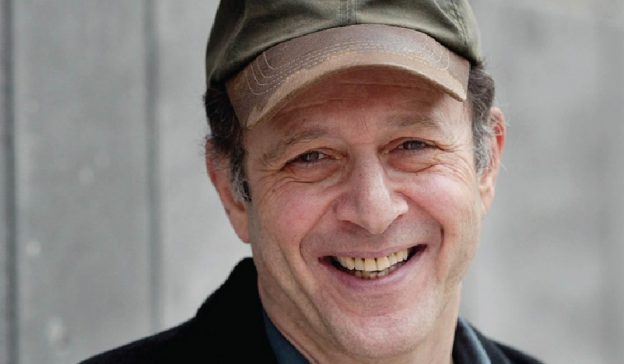Wall to Wall Steve Reich
part of Symphony Space’s FUSE PROJECT
Free and open to the public
Sunday, April 30, 2017, 3 PM to 11 PM
Peter Jay Sharp Theatre @ Symphony Space
STEVE REICH The Desert Music
Part of Segment 3: starts at 8 PM
The American Composers Orchestra is participating in Wall to Wall Steve Reich, an eight-hour marathon event of his music, featuring dozens of ensembles and performers. ACO will provide the grand finale of the event – a performance of Reich’s magnum opus The Desert Music (1983). The piece is a setting of parts of poems by the American poet William Carlos Williams and was commissioned by West German Radio (Cologne) and the Brooklyn Academy of Music.
Read a Q&A with Alan Pierson about conducting The Desert Music and working with Steve Reich
Program
Segment 1: 3 PM
Piano Counterpoint (1973, arr. 2011 by Vincent Corver), performed by Vicky Chow
WTC 9/11 (2010), performed by Mivos Quartet
Electric Counterpoint (1987), performed by Mark Stewart, Dither, and friends
Sidewalk, set to Double Sextet (2007), performed by Keigwin + Company
Segment 2: 5:30 PM
Clapping Music (1972)
City Life (1995)
Radio Rewrite (2013)
Four Genesis Settings from The Cave (1990-1993, arr. 2013 by Alan Pierson)
performed by Alarm Will Sound
Steve Reich and Alan Pierson in Conversation
Segment 3: 8 PM
Different Trains (1988), performed by Mivos Quartet
Steve Reich, Stephen Sondheim and Alan Pierson in Conversation
Finishing the Hat–Two Pianos (2010, Sondheim, arr. Reich)
performed by Anthony de Mare
The Desert Music (1983, arr. 2001 by Alan Pierson)
performed by American Composers Orchestra
Symphony Space’s FUSE PROJECT celebrates artistic innovation through new commissions, premieres, vibrant collaborations, and extraordinary performances.
In the Composer’s Own Words:
The pulse which begins and ends The Desert Music and recurs throughout it is significant both musically and as a kind of wordless response to and commentary on the text itself. Musically it presents the harmonic cycles of the movements as a kind of pulsing chorale…That constant flickering of attention between what words mean and how they sound when set to music is one main focus of The Desert Music.
I have loved Dr. Williams’ poetry since I was 16 years old and picked up a copy of his long poem Patterson just because I was fascinated by the symmetry of his name – William Carlos Williams. I have continued reading his work to the present. I find Dr. Williams’ finest work to be his late poetry written between 1954 and his death in 1963 at age 80. It is from this period in the poet’s work that I have selected the texts for The Desert Music – a period after the bombs were dropped on Hiroshima and Nagasaki. Dr. Williams was acutely aware of the bomb and his words about it, in a poem about music entitled The Orchestra struck me as to the point: “Say to them:/ Man has survived hitherto because he was too ignorant/ to know how to realize his wishes. Now that he can realize/ them, he must either change them or perish.” When I began work on The Desert Music I thought those words were too grave to set and thought I would use a tape of Dr. Williams reading them instead. When the time came to compose the third movement in the summer of 1983 I did know how to set them because the character of the harmonies in the third seemed to generate just the right setting. I was very glad now I did not resort to using a tape. In the center of the piece is the text, also from The Orchestra, which says, “it is a principle of music/ to repeat the theme. Repeat/ and repeat again,/ as the pace mounts. The/ theme is difficult/ but no more difficult/ than the facts to be/ resolved.” Those at all familiar with my music will know how apt those words are for me and particularly this piece which, among other things, addresses that basic ambiguity between what the text says, and its pure sensuous sounds.


